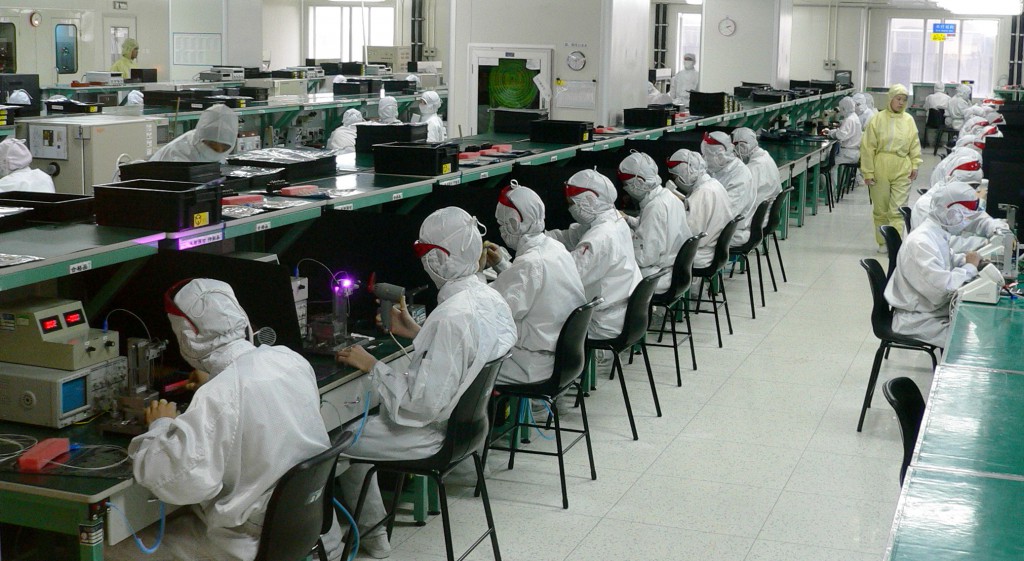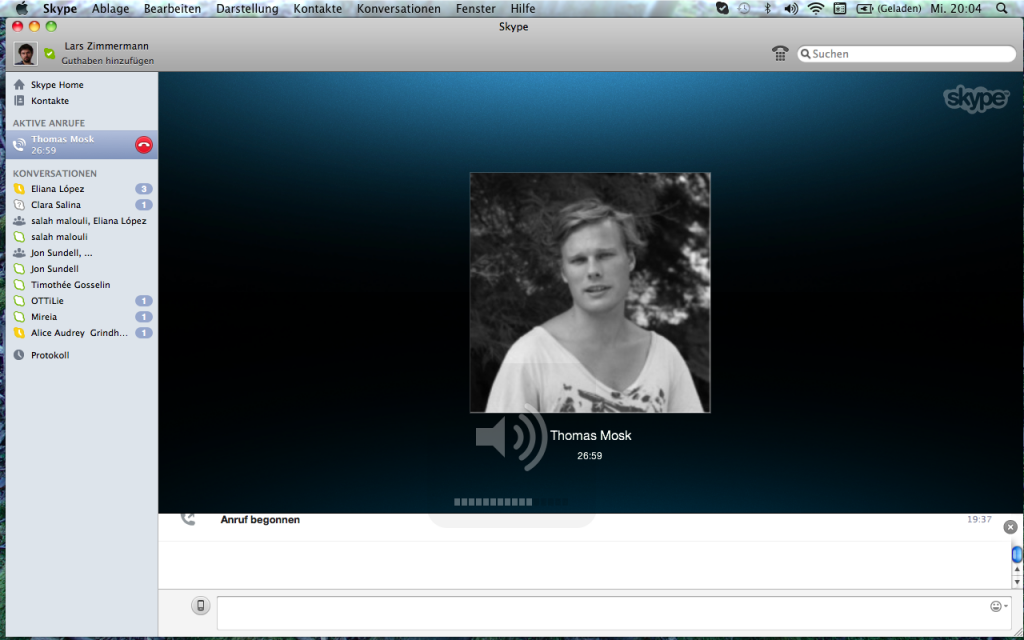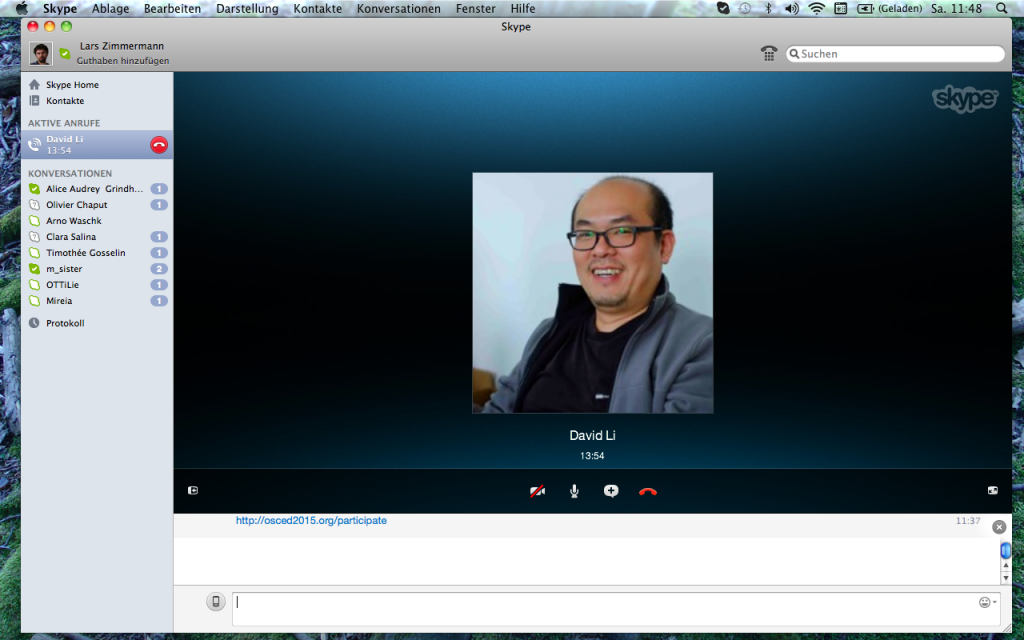Open Ecosystems in China
(en,–)
This posting was originally written for the Open Source Circular Economy Days (OSCEdays) Blog.
Being part of the OSCEdays organisational core team comes with the benefit of getting to meet and talk to a lot of interesting people from across the globe. So for me developing the OSCEdays is a great learning experience on how to set up a complex project and structure, as well as about Open Source and Circular Economy.
I enjoy taking bits from one conversation and taking it to another, being a carrier. But I can’t clearly talk to every one of you, so I decided to write this blogpost to share some of the most inspiring learnings from the last week.
Monopolies and Circular Economy?
On Wednesday I talked with Thomas Mosk a Dutch researcher who is currently Assistant Professor of Finance at the Center of Excellence SAFE of the Goethe University in Frankfurt (Germany). He is generally interested and curious about the OSCEdays mission and questions. „Tell me some of the problems you have, and I’ll try to answer them from the perspective of an economist.“ Thomas said.
Lars: “I get asked almost every time ‘How to make money with Open Source?’ People miss the general insight and understanding, that there are other ways to make money then having a patent. There is this strong misconception or preconception that patents are the only way to make an income, and this prevents people from thinking creatively and beyond.”
And starting from that, our discussion touched on monopolies (as patents grant monopolies) and that economists know that monopolies are by far not the only way to run a successful business. Networks for example are another one; open networks that allow lowered costs for innovation, collaboration and marketing work well in many cases.
Later, the discussion went on to a simple analogy: The streams of resources, products and so on in an economy could be seen as water flowing through a pipe, and in a circular economy this pipe has the shape of a circle and the water has to go really fast. But every time you add a monopoly, the water flows slower.
Everytime you add a monopoly the water flows slower.
I liked that image; it is simple and inspiring – monopolies as a plug/stopper of circular flows? This may be not true in 100% of the cases, but the image points us to question and research the general relationship between monopolies and a circular economy.
Thomas and I talked about a lot more. I can’t share everything here. But Thomas is interested in joining the OSCEdays. Maybe he will present a challenge or just be there for further discussions during the OSCEdays, bringing in his economic knowledge.
Makers, Open Source Ecosystems & Circular Processes in China
Update: Here is the video message send from David Li
On Saturday I was chatting with David Li from Shanghai/Shenzhen in China. David is part of the „Hacked Matter“ Think Tank and the Shenzhen Open Innovation Lab and is „researching about the global maker movement and the Chinese grassroots manufacturing ecosystem.“ He is looking into open source and also circular processes!
„Reuse has always been a part of the Shenzhen economy.“
„Reuse has always been a part of the Shenzhen economy.“
For those of you who don’t know: Shenzhen is a hub and node for technology in China, thousands of electronics manufacturers of all sizes work right next to each other in a vibrant and „somehow crazy” ecosystem. And openness plays a huge role in it! There are other cities in China like Shenzhen, some of them focused on one particular technology like e-bikes for example. And openness plays a part for innovation and manufacturing in most of them.
When I give lectures about open source hardware I always emphasize the chance of ecosystems. Building open source hardware means to grow in and build upon open ecosystems. Networks rather than monopolies! And in China we see this in place to a certain extent.
So I was curious to hear David’s answer to the question “How to make money with Open Source.” And I think I noticed a little bit of surprise in his voice to be asked that question – maybe when you work in open ecosystems this question doesn’t make so much sense. „For hardware it is easy. For software it is harder, yes“ was his simple answer.
But the really interesting part was to hear how repairing, reusing and refurbishing is already a noticeable part of that ecosystem. „There is a repair shop in almost every street here.“
“There is a repair shop in almost every street here.”
China used to import a lot of old and second-hand electronics from the US, and still does. Because of that, over time they developed a strong infrastructure and a culture of repair and refurbishing. “China is a big and growing market but an developing economy as well.” This infrastructure is not shrinking nowadays. It is growing with the rest! And they are willing to include and improve this infrastructure and the culture around it in the future. (David contacted me not because of the OSCEdays but the IPO tables project.)
To conclude: China has huge and open source comparable ecosystems in place that already have built in infrastructures for reuse, refurbishment and repairing. The rest of the world can probably learn a lot from China!
And I am really happy to say, that David wants to bring in 3 cities from China to the Open Source Circular Economy Days. There is not much time left to jump on board but I hope that he will manage to get at least one city. It would be great to have some of China’s experience and issues in this global exchange.
_
(Ps. Think about it: The repairing probably inspired the manufacturing!)
IMG: Electronics_factory_in_Shenzhen, by Steve Jurvetson, CC-BY 2.0


